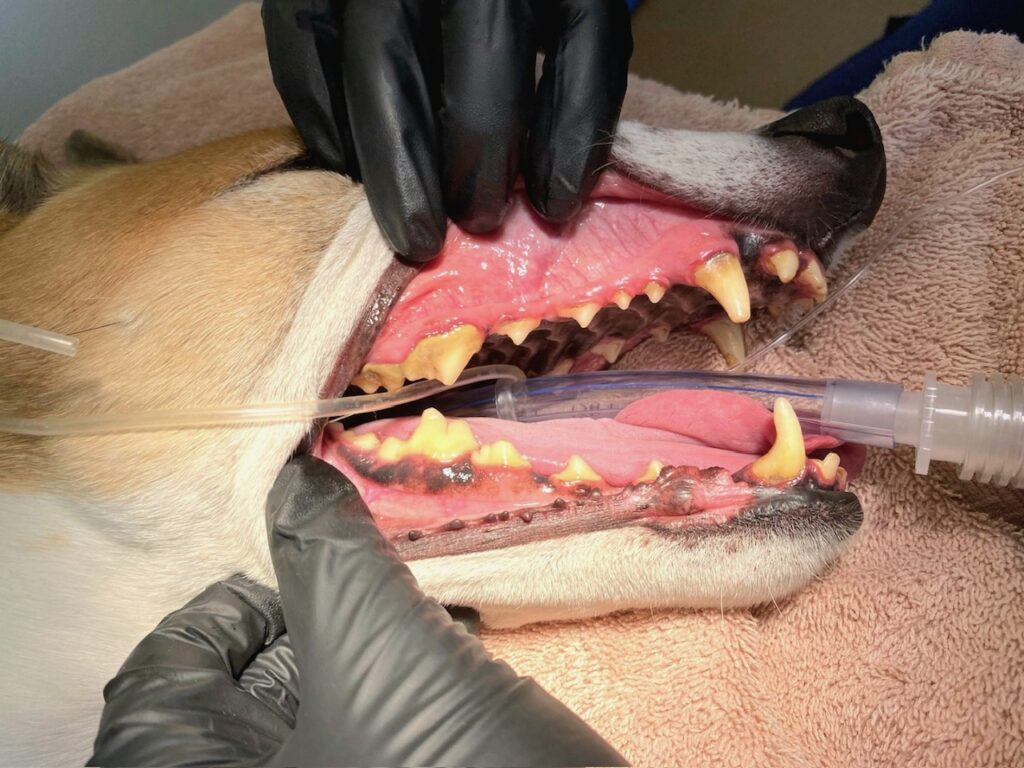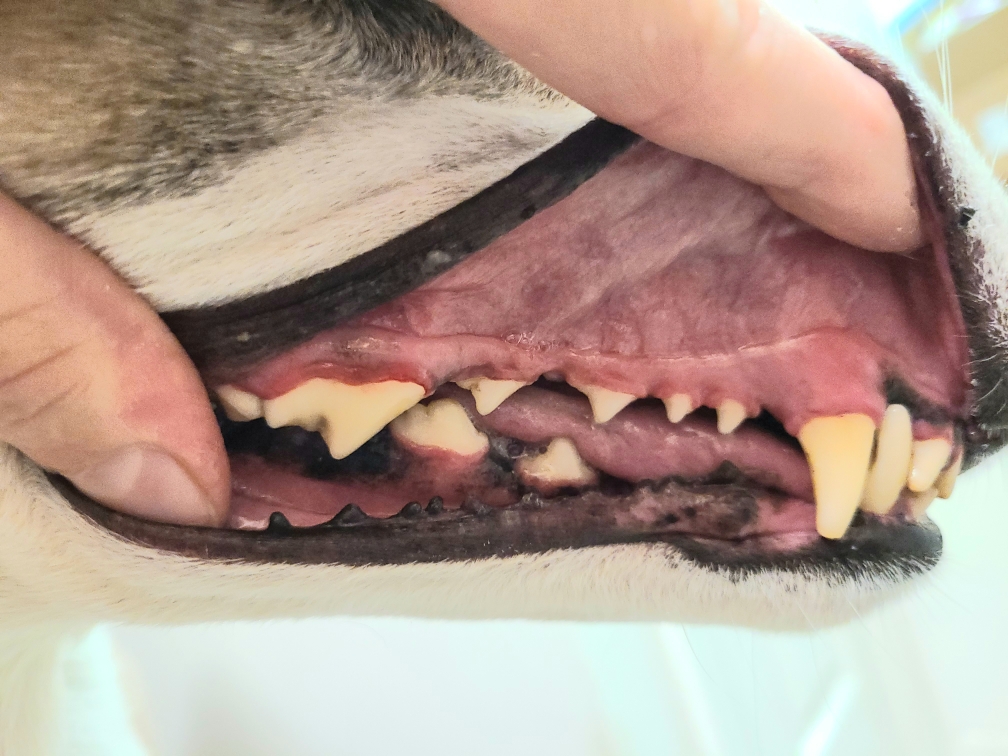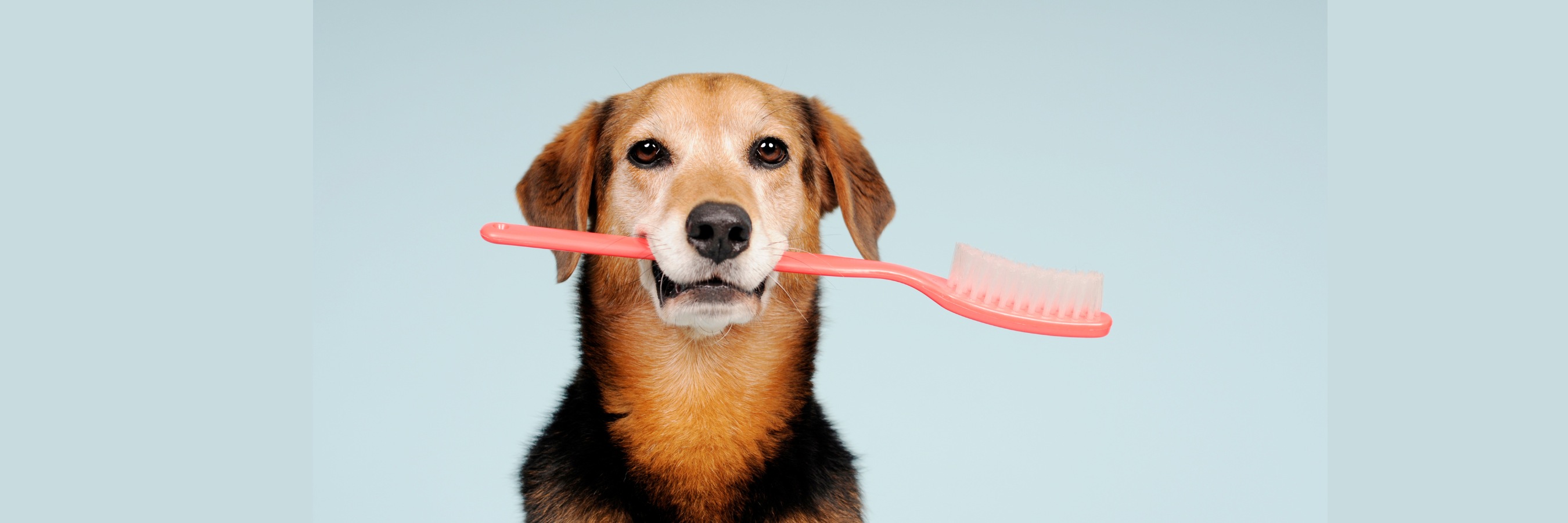Year-round Pet Dental Health Tips
Did you know that February was pet dental health month? The American Veterinary Medical Association dedicates the month to dental health, but oral care for our pets is important all year long. The teeth and gums are important for the overall health of our furry friends. If excessive plaque and tartar build up along the teeth and gum line, periodontal disease occurs. Periodontal disease is inflammation of the gums and tissues surrounding the tooth, which can cause pain, infection, abscesses, and tooth loss. This can also cause harmful bacteria to spread to other parts of the body, such as the kidneys or heart.
Up to 70% of cats and 80% of dogs have signs of periodontal disease by age 3. Prevention is the best way to avoid periodontal disease in our pets and prevent unnecessary tooth loss. Home oral care, safe chews, annual exams, and professional cleanings are all necessary to ensure optimal oral health.
Home Oral Care
Brushing is the gold standard of home care. The mechanical action of tooth brushing removes plaque and prevents buildup of tartar. Daily brushing is ideal, but even 2-3 times per week is beneficial. Pets require special toothpaste but can use any ADA compliant soft bristle toothbrush. In addition to brushing or if brushing is not possible for your pet, daily dental chews or dental specific diets can reduce tartar buildup. The Veterinary Oral Health Council has compiled a list of safe and effective dental products, including treats/chews, oral rinses, and dental diets. They have awarded these products the VOHC Seal of Acceptance. You can visit VOHC.org for a list of updated recommendations.
Avoid Certain Bones and Chew Toys
Some bones or chews can cause tooth fractures in our pets. Fractures often cause pain, infection, and sometimes tooth root abscesses. Some can be repaired by a veterinary dentist, but most require extraction of the tooth. The most common tooth fracture in dogs is the largest chewing tooth on the upper jaw, the 4th premolar. Deer antlers, raw bones, plastic or nylon chew toys, and regular tennis balls are too hard or abrasive for our pet’s teeth. As a general rule, if you cannot make an indentation with your fingernail in the chew toy, it is too hard for your dog’s teeth.
Annual veterinary exams and oral evaluations
Your veterinarian will perform a full physical examination with oral exam at your pet’s annual wellness visit. They will grade the level of dental tartar and disease on a scale of 0 to 4. Fractures, missing teeth, masses, and other tooth lesions may be noted on a routine exam. Your pet may be living with a bad tooth and never show obvious symptoms, so routine vet visits will help catch problems before they become more advanced.
Professional dental cleanings
Professional cleanings will remove tartar, treat existing disease, and maintain healthy teeth and gums. Full anesthesia is necessary to prevent patient stress, allow thorough evaluation and x-rays, and eliminate pain during the procedure. Although all anesthetic procedures come with some risk, our current protocols are very safe and the benefits outweigh the risks for most pets. Your pet will also be continuously monitored by a trained veterinary nurse and monitoring machines. After the procedure, your pet can go home later that day. Pain medication and a soft food diet will be needed after extractions.
After much-needed professional dental care, many clients notice that their pets act more playful and younger than before!
Contact us to schedule your pet’s annual exam and oral evaluation today!
– Mary Ann McKissick, DVM



